The Best Mosquito-Repelling Plants for Your North Carolina Backyard
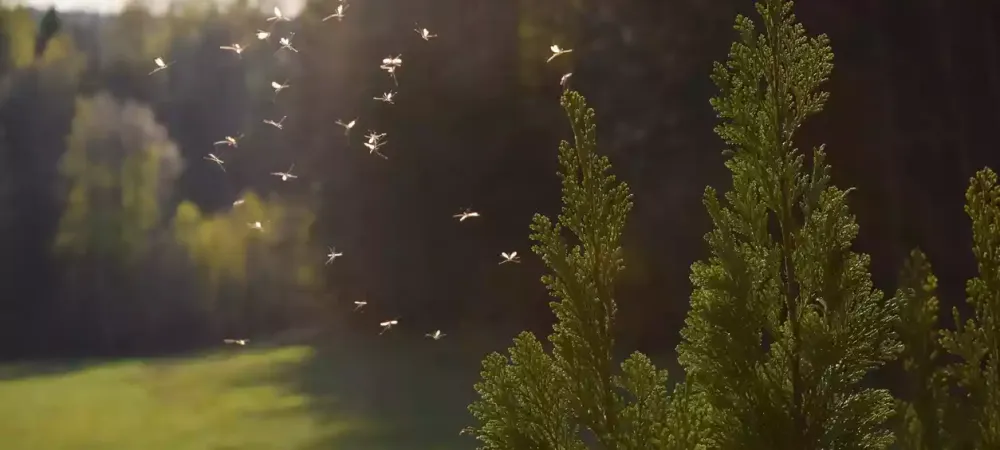
As summer approaches in North Carolina, many homeowners find themselves battling the pesky nuisance of mosquitoes. These tiny, buzzing insects can quickly turn outdoor gatherings into uncomfortable experiences. While mosquito repellents and citronella candles can offer temporary relief, a more sustainable and natural solution lies in strategically planting mosquito-repelling plants in your backyard.
Best Plants for Mosquito Repellent
Not only do these plants help keep mosquitoes at bay, but they also add beauty, fragrance, and biodiversity to your outdoor space. In this guide, we'll explore some of the best plants for homeowners in North Carolina to plant in their backyard to create a mosquito-free oasis.
Citronella (Citronella Winterianus)

Let's start with the classic mosquito-repelling plant, citronella. This plant is famous for its strong, lemony fragrance, which naturally repels mosquitoes. In North Carolina's climate, citronella thrives in full sun and well-draining soil. You can plant citronella in pots or directly in the ground, making it a versatile choice for your backyard. Consider placing citronella near outdoor seating areas or around the perimeter of your yard to create a barrier against mosquitoes.
Citronella Grass (Cymbopogon nardus)

Citronella grass, also known as Cymbopogon nardus, is a tall, perennial grass that emits a strong lemony scent, making it an effective natural mosquito repellent. While related to citronella plants, citronella grass is specifically grown for its essential oils, which are used in many commercial mosquito repellents. In North Carolina, citronella grass thrives in warm climates with well-draining soil and full sun exposure.
Lavender (Lavandula)
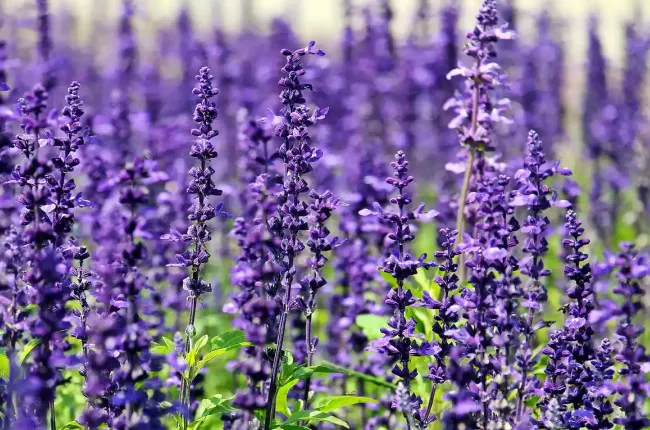
Not only does lavender add a beautiful pop of purple to your garden, but it also has natural mosquito-repelling properties. The strong scent of lavender is known to deter mosquitoes, making it an excellent choice for North Carolina homeowners. Lavender plants prefer full sun and well-drained soil, making it ideal for planting in raised beds or containers. Plus, you can harvest the flowers to make soothing lavender sachets or essential oil for added benefits.
Marigolds (Tagetes)
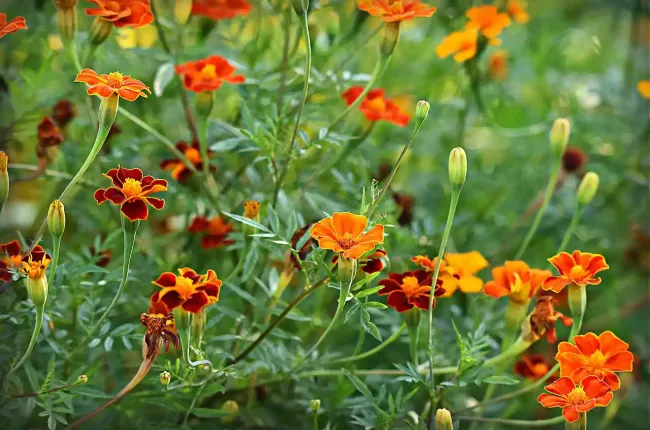
Marigolds are not just pretty flowers but also effective at repelling mosquitoes. These colorful annuals contain pyrethrum, a natural insect repellent found in many commercial mosquito repellents. Plant marigolds in sunny areas of your backyard to keep mosquitoes away. They are low-maintenance plants that bloom throughout the summer, adding vibrant hues of yellow and orange to your outdoor space.
Catnip (Nepeta Cataria)
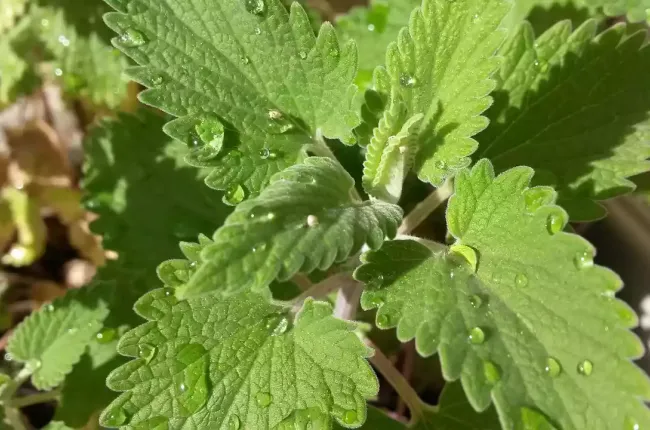
Catnip is not just for cats; it's also a powerful mosquito repellent. Research has shown that catnip is even more effective than DEET, a common ingredient in insect-repellent sprays. Plant catnip in your garden to enjoy its fragrant leaves and keep mosquitoes at bay. Be mindful that catnip can spread quickly, so consider planting it in a contained area or in pots to control its growth.
Rosemary (Rosmarinus Officinalis)
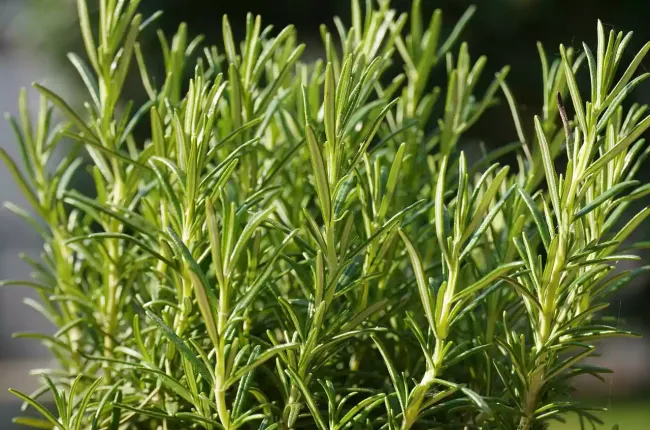
Rosemary is a versatile herb that not only adds flavor to your culinary creations but also helps repel mosquitoes. This woody perennial thrives in North Carolina's climate, preferring well-draining soil and plenty of sunlight. Plant rosemary in your backyard borders or in pots near outdoor seating areas to benefit from its mosquito-repelling properties while enjoying its aromatic foliage.
Lemon Balm (Melissa Officinalis)

Lemon balm is another member of the mint family known for its lemony scent and mosquito-repelling qualities. Plant lemon balm in partial shade to full sun and well-draining soil. It's a fast-growing herb that can quickly fill in spaces in your garden while keeping mosquitoes away. You can also use lemon balm leaves to make refreshing herbal teas.
Basil (Ocimum Basilicum)

Basil is not just a kitchen staple; it also has mosquito-repelling properties. This aromatic herb thrives in warm, sunny conditions, making it perfect for North Carolina gardens. Plant basil in pots or in garden beds near your outdoor dining area to deter mosquitoes while enhancing your culinary adventures with fresh basil leaves.
Lemongrass (Cymbopogon Citratus)
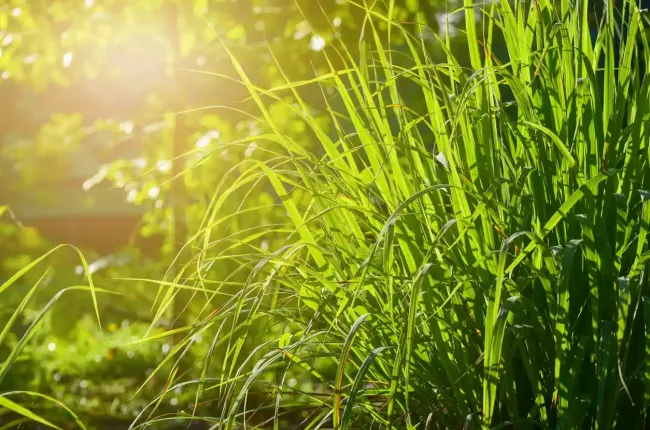
Lemongrass is a tropical grass with a strong lemon scent that naturally repels mosquitoes. It thrives in warm climates like North Carolina and can be grown in pots or directly in the ground. Plant lemongrass in a sunny spot with well-draining soil and water it regularly to keep it healthy and vibrant. You can also harvest the leaves to make fragrant teas or add flavor to Asian-inspired dishes.
Geraniums (Pelargonium)
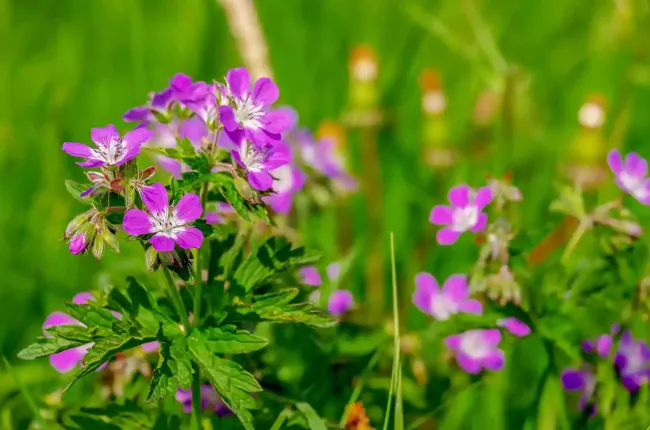
Geraniums are not only beloved for their colorful blooms but also for their mosquito-repelling properties. Certain varieties of geraniums, such as the scented geranium (Pelargonium citrosum), emit a lemony fragrance that deters mosquitoes. Plant geraniums in containers or garden beds in sunny locations to enjoy their beauty while keeping mosquitoes away. Deadhead spent blooms to encourage continuous flowering throughout the summer.
Mint (Mentha)
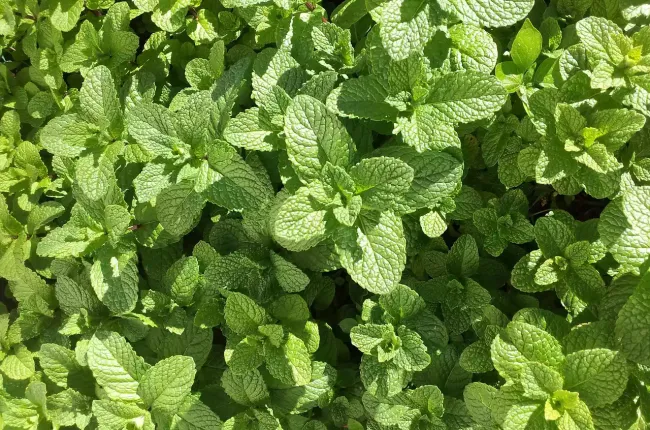
Mint is a versatile herb with a refreshing scent that mosquitoes dislike. Varieties like peppermint and spearmint are particularly effective at repelling these pests. Plant mint in pots or garden beds with well-draining soil and partial to full sun exposure. However, be cautious as mint can be invasive, so it's best to contain it in pots or use a root barrier in the ground to prevent spreading.
Eucalyptus (Eucalyptus spp.)

Eucalyptus trees or shrubs not only add a touch of exotic beauty to your backyard but also help repel mosquitoes with their strong aroma. These evergreen plants thrive in sunny locations with well-draining soil. You can plant eucalyptus trees as a focal point in your landscape or grow smaller varieties in pots for a patio or deck. The oil from eucalyptus leaves is also used in natural insect repellents.
Chrysanthemums (Chrysanthemum spp.)

Chrysanthemums, commonly known as mums, are not only fall favorites for their vibrant blooms but also for their insect-repelling properties. They contain a natural insecticide called pyrethrin, which is commonly used in mosquito repellents. Plant chrysanthemums in well-draining soil and full sun to enjoy their colorful flowers while keeping mosquitoes and other pests at bay.
Bee Balm (Monarda didyma)
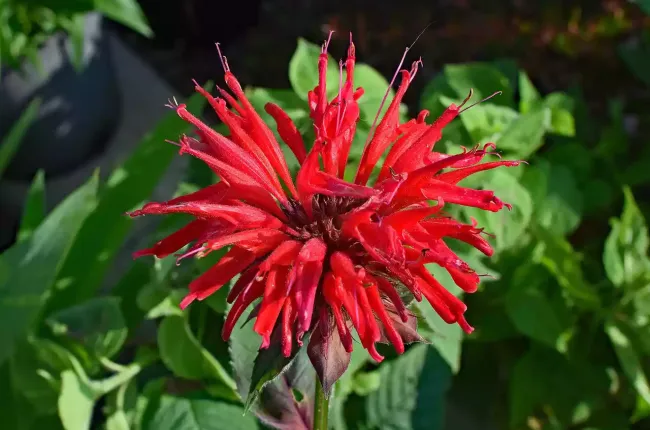
Bee balm, also known as Monarda didyma or bergamot, is a native North American plant that not only attracts pollinators like bees and butterflies but also repels mosquitoes with its aromatic foliage. The leaves of bee balm contain natural oils that mosquitoes find unpleasant, making it a valuable addition to your North Carolina backyard.
Bee balm thrives in well-draining soil and prefers partial shade to full sun, making it adaptable to various garden conditions. Plant bee balm in garden beds, borders, or containers to add a burst of color and fragrance to your outdoor space. The vibrant red, pink, or purple flowers of bee balm will not only beautify your garden but also attract beneficial pollinators.
Alliums (Allium spp.)
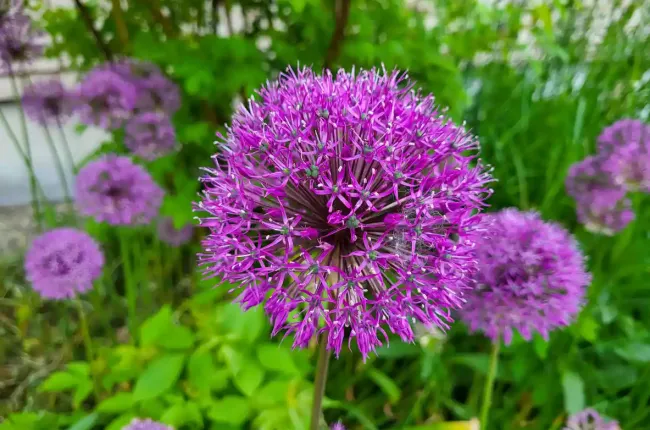
Allium plants, which include garlic, onions, chives, and ornamental alliums, are known for their pungent scent that repels mosquitoes and other pests. Plant ornamental allium bulbs in well-draining soil and full sun to enjoy their tall stems topped with colorful, spherical blooms. The strong scent of ornamental alliums naturally deters mosquitoes, making them a valuable addition to your North Carolina backyard landscape.
Choosing The Right Plant
By incorporating these mosquito-repelling plants into your North Carolina backyard, you can create a more enjoyable outdoor environment for you and your family. Not only do these plants help keep mosquitoes at bay, but they also add beauty, fragrance, and culinary potential to your outdoor space. Remember to choose plants that thrive in your specific microclimate and provide them with the appropriate care to ensure their health and effectiveness in repelling mosquitoes. With a little gardening know-how and the right plants, you can transform your backyard into a mosquito-free space where you can relax and unwind all summer long. Learn what other smells mosquitoes hate.
Professional Mosquito Control
While these common plants might naturally repel mosquitoes, they can be a lot of work and must be strategically placed to keep your entire yard mosquito-free. For more effective and comprehensive mosquito protection, look no further than our team of experienced mosquito exterminators at Wolfpack Pest Control. Contact us today to learn more!
